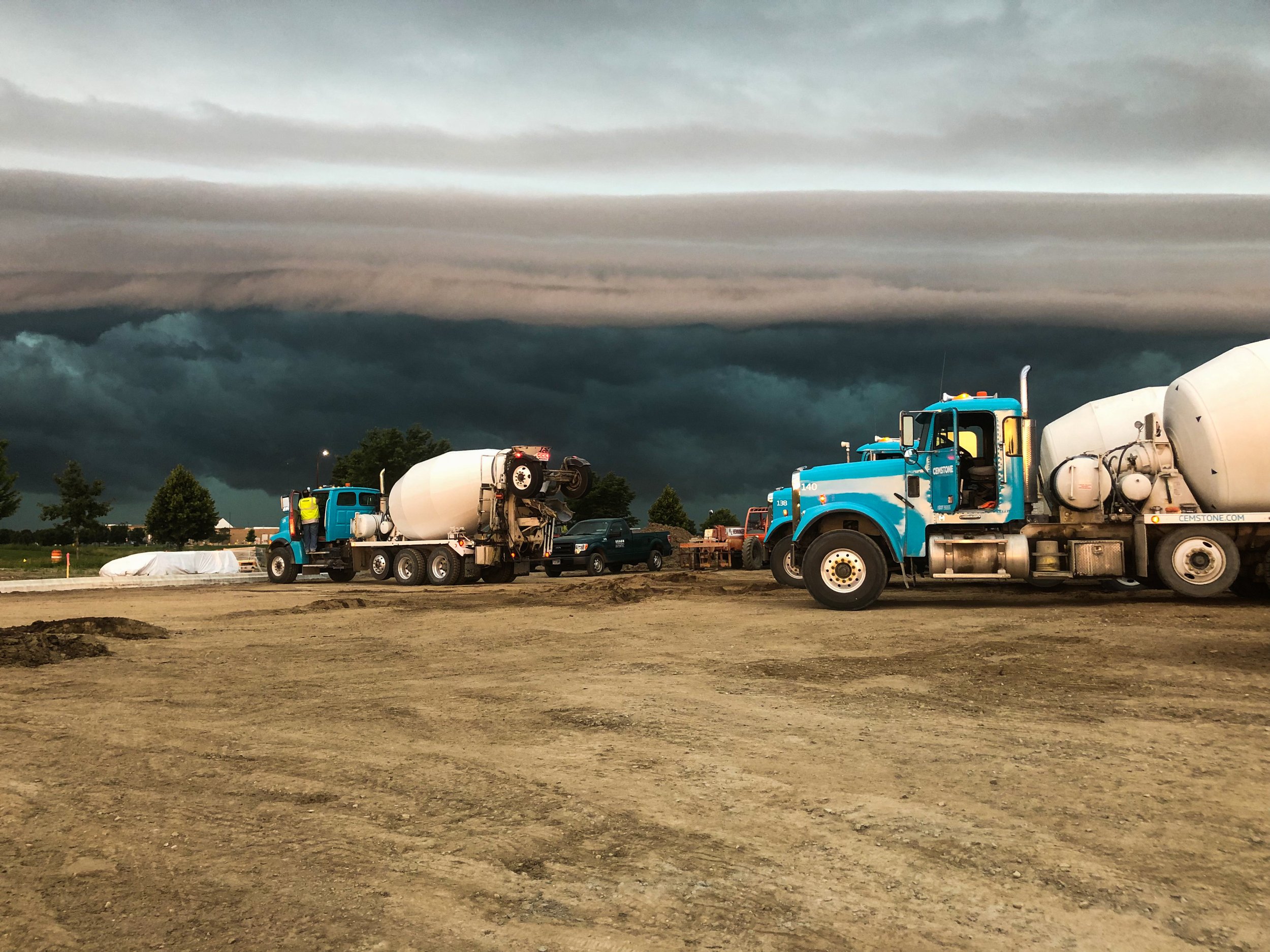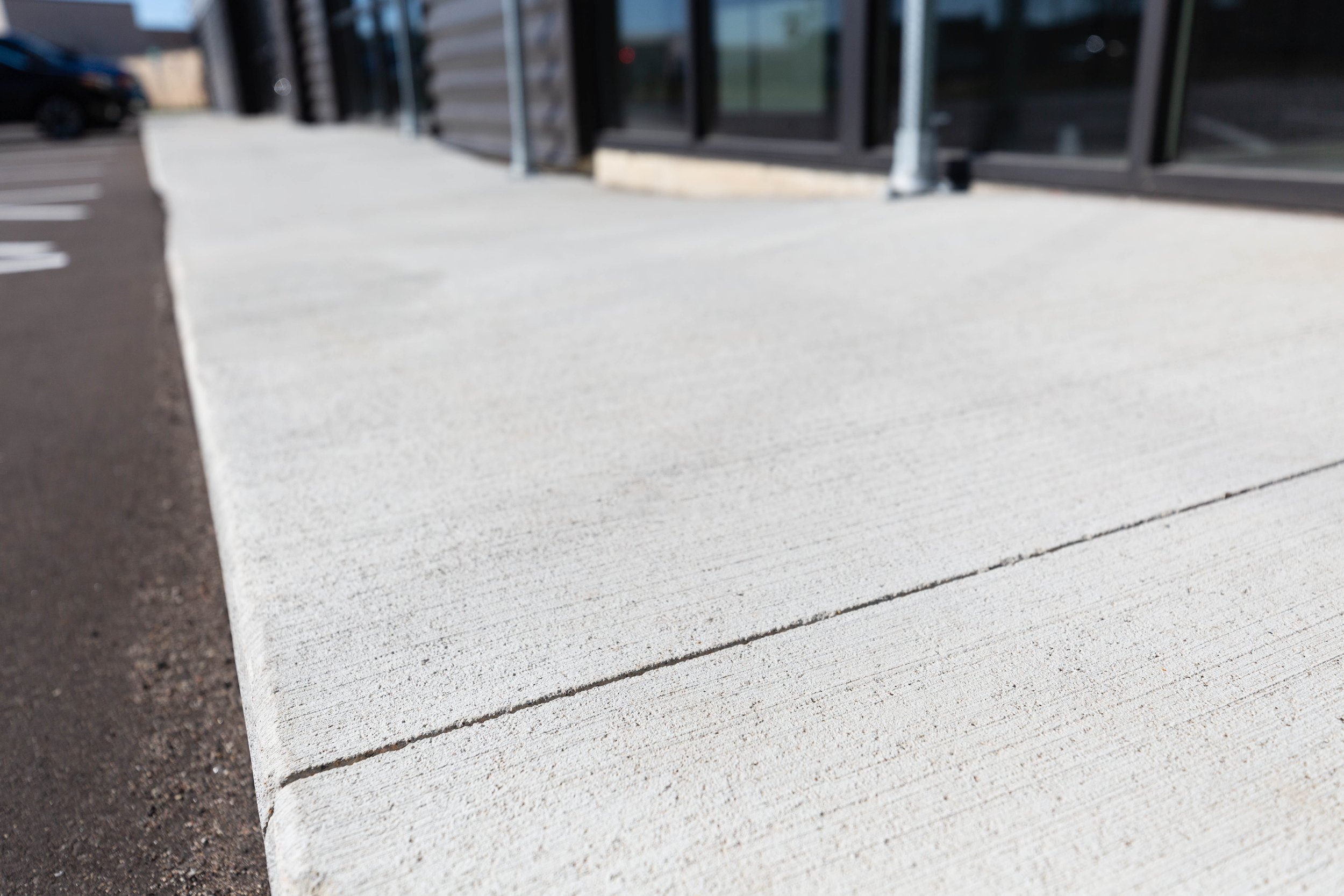How to Choose the Right Concrete Mix for Your Next Project
Whether you're planning a residential driveway, a commercial foundation, or an industrial floor slab, one thing remains true: choosing the right concrete mix is critical to your project’s success. At Evenson Concrete Systems, we believe great results start with understanding your materials. This guide will walk you through the essential factors in selecting the right concrete mix, including strength, additives, curing time, and more.
Inside the Blog:
1. Understand the Different Types of Concrete
2. Consider Project-Specific Requirements
3. Know Your Additives and Admixtures
4. Factor in Curing and Climate
5. Don’t Forget About Site Prep
Why the Right Mix Matters
Concrete isn’t a one-size-fits-all solution. The mix you use must match the project’s purpose, environment, and expected load. Choosing the wrong type can lead to cracking, premature wear, or even structural failure. That’s why working with a trusted partner like Evenson Concrete Systems—who understands the variables of strength, durability, placement, and weather—can make all the difference.
1. Understand the Different Types of Concrete
Before diving into mix selection, it's important to understand the basic concrete types used in construction:
Standard Concrete
Made from cement, water, and aggregates.
Best for general-purpose projects like sidewalks and residential slabs.
High-Strength Concrete
Designed for load-bearing applications.
Common in foundations, parking structures, and multi-story buildings.
Fiber-Reinforced Concrete
Contains synthetic or steel fibers for improved crack resistance.
Ideal for driveways, pool decks, and areas prone to shrinkage.
Self-Consolidating Concrete (SCC)
Flows easily without the need for vibration.
Perfect for decorative work or intricate formwork.
Air-Entrained Concrete
Contains tiny air bubbles to enhance freeze-thaw resistance.
Essential for exterior concrete in Minnesota’s climate.
2. Consider Project-Specific Requirements
Different projects call for different properties. Let’s look at common applications and what you should prioritize:
Driveways & Walkways
Look for mixes in the 4,000–4,500 psi range.
Air-entrained concrete prevents cracking from freezing and thawing.
Consider fiber reinforcement for added durability.
Foundations & Footings
Require high compressive strength (3,500–5,000 psi).
Low water-cement ratio ensures long-term integrity.
Additives like water reducers can improve workability without compromising strength.
Garage Floors & Slabs
Need resistance to oil, salt, and abrasion.
A 4,000–4,500 psi mix with proper curing and sealers is ideal.
Use vapor barriers and plasticizers for longer slab life.
Patios & Pool Decks
Fiber reinforcement helps prevent surface cracking.
Decorative finishes may call for colored or stamped mixes.
Quick-setting mixes can help speed up project timelines.
3. Know Your Additives and Admixtures
Concrete additives improve performance in specific conditions. Here are the most common:
Plasticizers (Water Reducers)
Enhance flow without increasing water content—ideal for dense rebar areas or pump jobs.
Accelerators
Speed up the curing process for cold-weather pours or tight project timelines.
Retarders
Slow curing in hot weather to prevent premature setting.
Air-Entraining Agents
Introduce tiny bubbles that allow concrete to expand and contract in freeze-thaw cycles.
Silica Fume or Fly Ash
Boost durability and reduce permeability—great for industrial and heavy-load applications.
4. Factor in Curing and Climate
Curing is just as important as your initial mix. Improper curing can cause cracking, reduce strength, and shorten your concrete’s lifespan.
Cold Weather Curing Tips
Use heated enclosures or insulated blankets.
Choose a mix with accelerators to speed curing.
Hot Weather Curing Tips
Use retarders to delay setting.
Mist surfaces or apply a curing compound to retain moisture.
For every project, aim for at least 7 days of proper curing and up to 28 days for full strength. Evenson Concrete Systems uses proven methods to ensure long-term performance, no matter the season.
5. Don’t Forget About Site Prep
Even the best concrete mix won’t perform well without solid site preparation:
Ensure a stable, well-compacted subgrade.
Use the right forms and reinforcements.
Maintain a consistent mix temperature, especially in Minnesota’s fluctuating climate.
Our team handles every phase with precision—from excavation to final finish—so you get concrete that’s built to last.
6. Partner with a Trusted Concrete Expert
When in doubt, consult with a contractor who understands not just the technical aspects of concrete, but also the local conditions. At Evenson Concrete Systems, our decades of experience in Minnesota give us insight into the right mix for every situation—from Shakopee footings to Rochester warehouse slabs.
We work closely with clients to assess project specs, identify ideal mixes, and ensure that your concrete holds strong for years to come.
Final Thoughts
Choosing the right concrete mix isn’t just about picking a number—it’s about understanding your goals, conditions, and usage. With the right balance of strength, workability, durability, and climate consideration, your concrete will perform beautifully and last for decades.
If you’re still unsure which mix is best for your next project, contact the experts at Evenson Concrete Systems. From residential driveways to industrial facilities, we’ve got the experience and insight to help you build smarter.
FAQs (Schema-Ready)
Q: What is the best concrete mix for a driveway?
A: A 4,000–4,500 psi air-entrained concrete mix with optional fiber reinforcement is ideal for driveways in cold climates like Minnesota.
Q: How long does concrete take to cure?
A: While concrete sets in 24–48 hours, it takes about 7 days to reach 70% strength and up to 28 days for full cure.
Q: What additives improve concrete performance?
A: Common admixtures include plasticizers (improve workability), air-entraining agents (freeze-thaw protection), accelerators (faster cure), and fly ash or silica fume (strength/durability).
Q: Can I use the same concrete mix for a patio and garage?
A: No. A garage requires oil- and abrasion-resistant concrete, while patios may benefit from decorative finishes and weather additives.
Q: What happens if you use the wrong concrete mix?
A: Using the wrong mix can lead to cracking, early failure, and costly repairs. Always choose a mix based on your application and environment.


